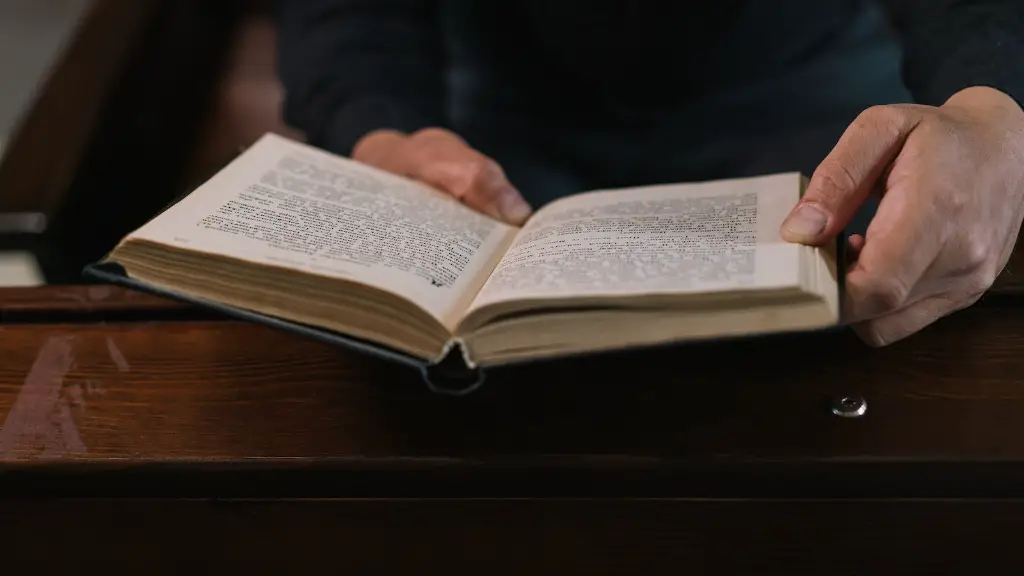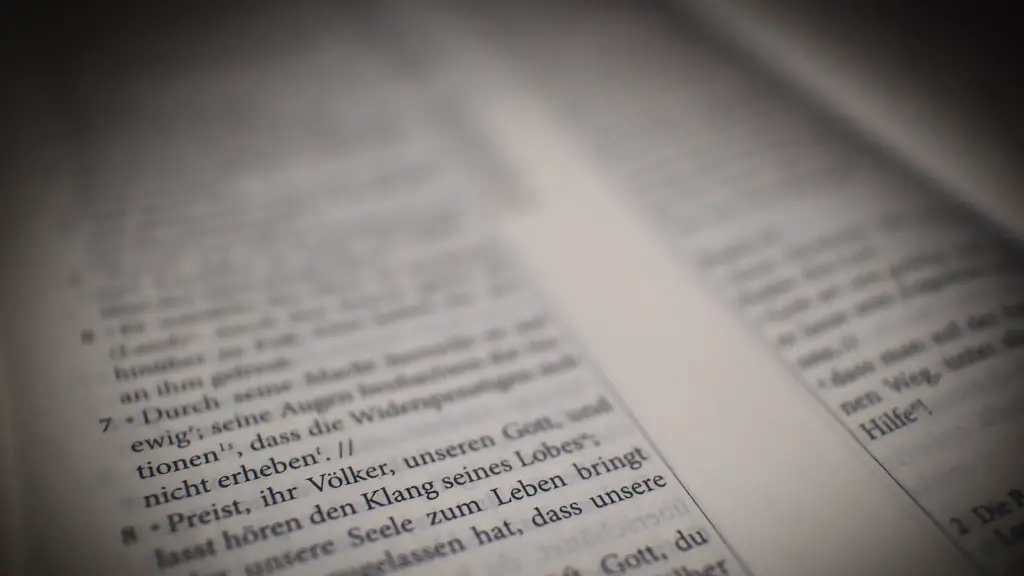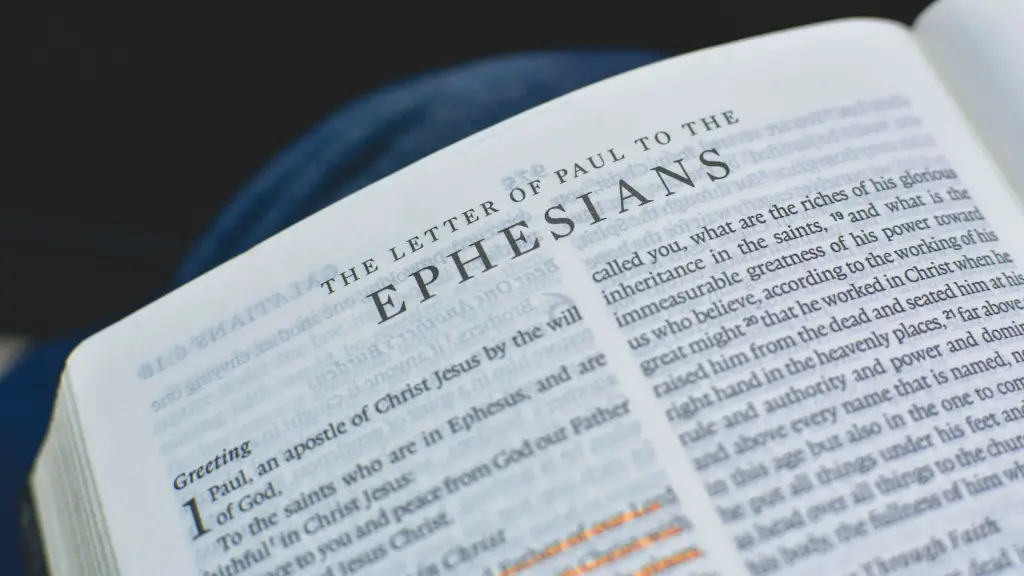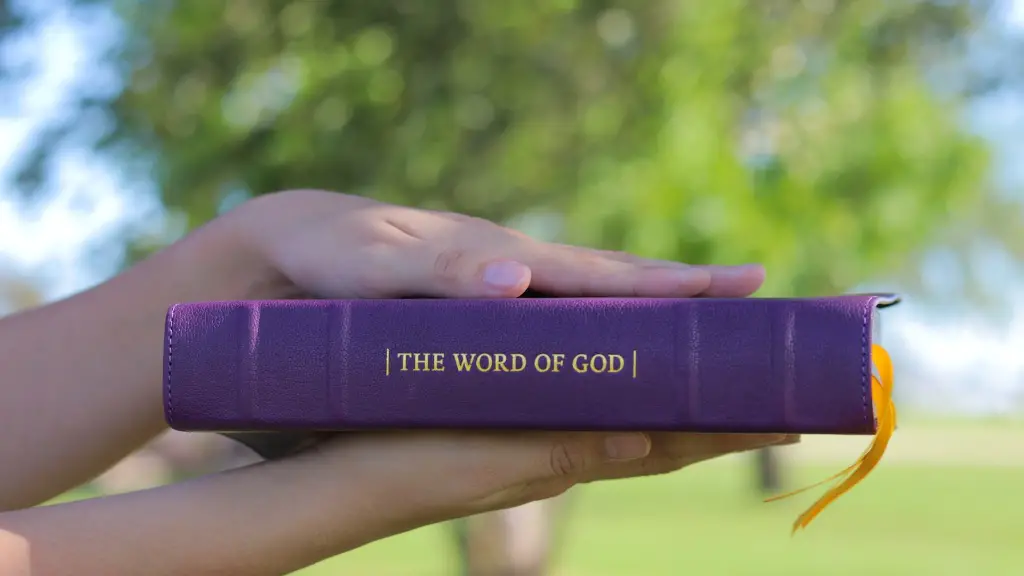Main Topic: What Does The Bible Say About Periods
The Bible is filled with stories, laws and symbols related to menstruation, though many of these passages can be hard to access and understand when taken out of the cultural and spiritual context of the original authors. In the Old Testament, menstruation was seen as a ritual impurity, while in the New Testament, the emphasis is more on the idea of cleanliness and holiness.
One of the most well-known passages related to menstruation in the Bible is from Leviticus 15, which states that anyone who has their period is considered “unclean” and must go outside the camp for seven days. During this time, the menstruating person is not allowed to touch anyone or enter a holy space until they have purified themselves through a ritual bath or prayer. This passage is seen by many as an archaic rule that is no longer applicable, while others believe it is still a powerful symbol.
In the New Testament, Jesus’ attitude toward menstruation is much more positive and understanding. In Matthew 15, he reprimands the Pharisees for getting overly legalistic about impurity laws and demonstrates his understanding of the situation by healing a woman “who had a flow of blood for twelve years” (verse 25). This story is often seen as a reminder that Jesus was willing to minister to even the lowest members of society, and his willingness to break the rules of ritual purity was revolutionary at the time.
The overall message of the Bible on the topic of menstruation is one of understanding and acceptance. While menstruation is still seen as a ritual impurity in some parts of the world, Jesus’ attitude and teachings suggest that we should not judge or condemn those who experience this natural part of life.
Today, many Christian denominations take a more accepting approach to menstruation, and some even celebrate the rite of passage of a woman’s first period. However, there is still a long way to go in terms of understanding and acceptance, particularly in some Christian circles.
Section 1:Menstrual Taboo & Restrictions
The Bible contains a number of passages that describe restrictions related to menstrual taboos. In the Old Testament, laws were in place that outlined what a menstruating woman was not allowed to touch or enter. In Leviticus, these rules are reinforced and further detail is given about the consequences of breaking them. In the New Testament, there is a greater emphasis on cleanliness and holiness.
In some parts of the world, these restrictions are still observed and upheld. For example, in South Asia and Africa, many rural women are expected to stay in their own homes during their periods, and in Hindu culture, many temples prevent women from entering. These restrictions can be seen as oppressive and coercive, and there has been much debate about whether they are still relevant today.
In recent years, there have been a number of campaigns that aim to challenge and push back against the taboos surrounding menstruation. In some parts of India, for example, menstruating women are actively encouraged to enter temples and take part in public events, in order to break down the outdated stigma.
Ultimately, the ultimate message of these campaigns is one of acceptance and understanding. By challenging existing taboos and restrictions, these movements are shining a light on the outdated and often sexist rules surrounding menstruation.
Section 2:Menstrual Care and Hygiene
The Bible also contains passages that discuss proper menstrual care and hygiene. In Leviticus, it is stated that a menstruating woman must take a ritual bath and wash herself in order to be “clean”. This instruction is still relevant today, as proper menstrual hygiene is essential for a woman’s health and well-being. This includes washing regularly, changing pads or tampons frequently, and using products that are free from chemicals and toxins.
In recent years, there has been a push towards using eco-friendly and sustainable menstrual products, such as menstrual cups and organic pads. These products not only help to reduce the environmental impact of menstruation, but also help to promote better hygiene, as they can be reused and do not contain any harsh ingredients or chemicals.
From a spiritual perspective, menstrual care is also important. For example, some women choose to meditate or pray during their period, in order to work through any emotions that may arise. The ancient practice of Moon Lodge is also a popular way for women to come together and honor their cycles. Through this type of ritual, women can take the time to relax and reflect on their journey, and connect with their spirituality.
Section 3: The Menstrual cycle & Mental Health
It has long been known that there is a link between the menstrual cycle and mental health. During a woman’s cycle, she may experience a range of emotions, from excitement and joy to sadness and anger. In some cases, these emotions can become overwhelming, leading to depression and anxiety.
The Bible acknowledges the fact that women experience these fluctuations in mood, as seen in Ecclesiastes 3:4, which states “a time to weep and a time to laugh”. This passage shows that God understands the natural ebbs and flows of life, and is willing to provide comfort and understanding in any situation.
In recent years, much research has been done on the subject of menstrual and mental health. Many studies have found that certain hormones, such as estrogen and progesterone, can have an effect on mood and behavior, and some women may be more prone to experiencing depression during certain times of their cycle.
For this reason, it is important for women to be aware of their menstrual cycle and the potential effects it can have on their mental health. Women should take steps to look after themselves during this time, such as engaging in self-care activities and seeking professional help if needed.
Section 4: Education & Awareness
Despite all of the advancements in understanding and acceptance, there is still much work to be done when it comes to educating people about menstruation. In many parts of the world, menstruation is still seen as a taboo, and girls and women are shamed for their natural biological process.
The Bible is filled with stories and laws that demonstrate an understanding and acceptance of menstruation. Jesus himself demonstrated a willingness to heal and minister to those in need, regardless of what society deemed acceptable. In order to break down the taboos, it is important to learn from the lessons of the Bible and practice understanding and acceptance in our own lives.
In recent years, a number of initiatives have been set up in order to increase awareness and understanding of menstruation. Many of these initiatives focus on increasing access to education and resources, such as providing sanitary products to women in need or setting up programmes in schools to teach young girls about their bodies. These initiatives are helping to normalize the conversation around periods and change the way menstruation is viewed in society.
Ultimately, education and awareness are the key to breaking down the taboos and stigma surrounding menstruation. By teaching others about the topic and demonstrating understanding and compassion, we can help to create a more positive image of menstruation for future generations.





